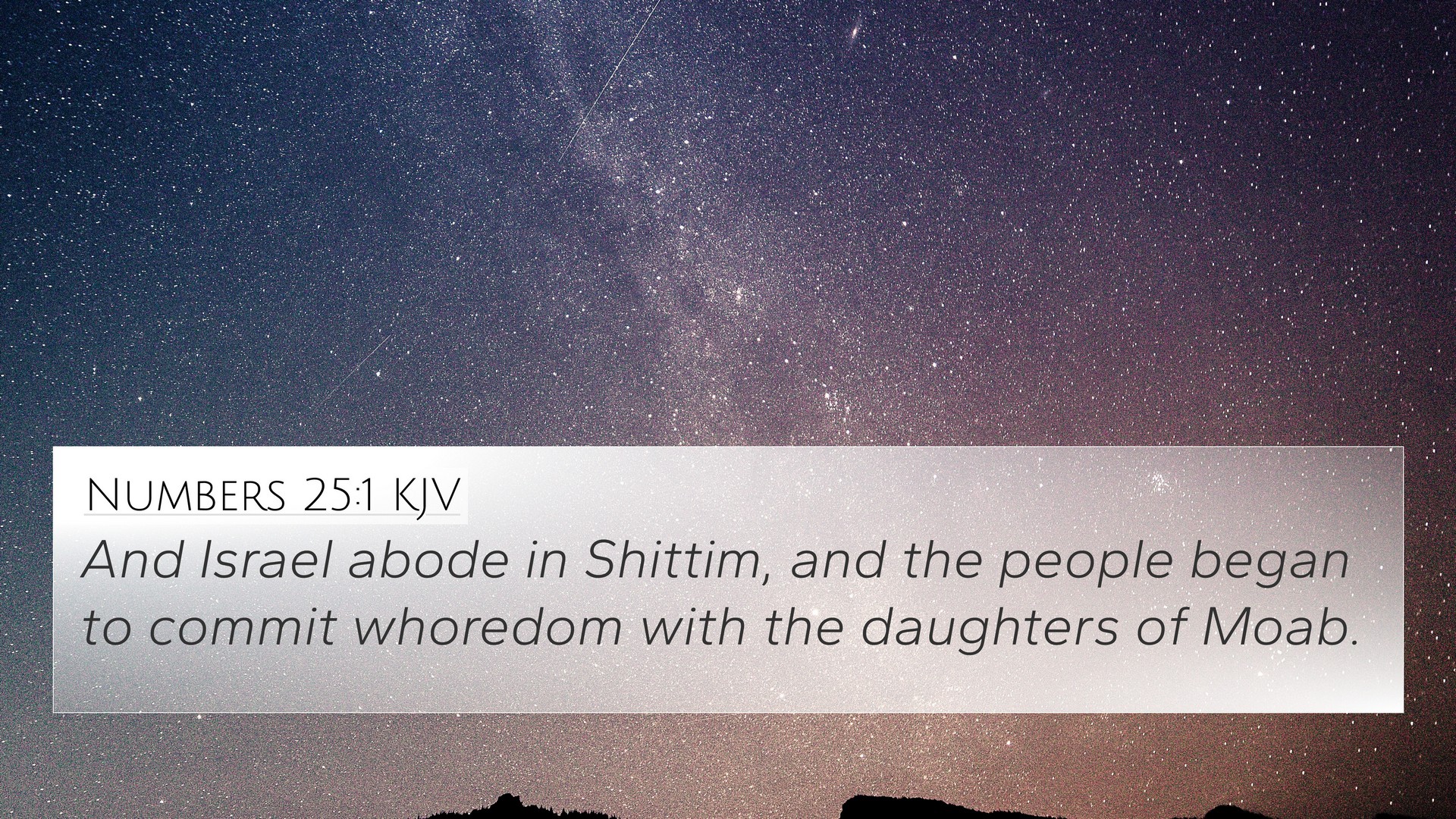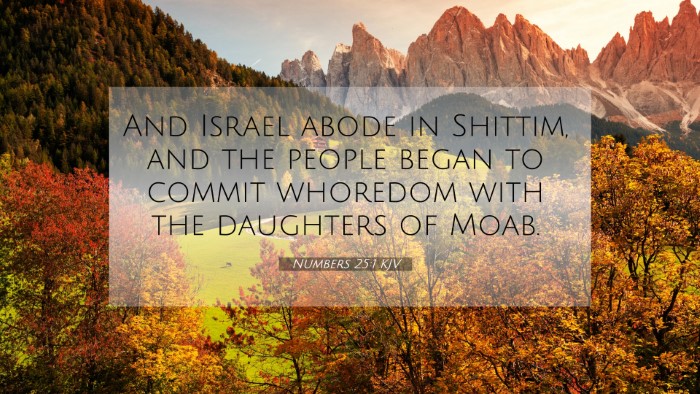Understanding Numbers 25:1
Numbers 25:1 states: "And Israel abode in Shittim, and the people began to commit whoredom with the daughters of Moab." This verse serves as a pivotal moment in the narrative of Israel's journey, capturing significant themes of disobedience and idolatry that have long-lasting implications.
- Contextual Significance:
Matthew Henry notes that this incident occurs during a crucial phase of Israel's wilderness wanderings, where the people face numerous temptations that threaten their covenant relationship with God.
- Spiritual Implications:
Albert Barnes emphasizes that the act of "whoredom" symbolizes spiritual unfaithfulness, where the Israelites' infidelity is not merely physical but reflects their turning away from God to foreign practices.
- Consequences of Disobedience:
Adam Clarke elaborates on how this episode presages dire consequences, showcasing how easily the chosen people can slip into sin when they forfeit their vigilance against corrupting influences.
Thematic Connections
This verse highlights several interconnected themes that resonate throughout the Bible:
- Idolatry: The Israelites' engagement with Moabite women is not just about physical relationships but represents a deeper spiritual betrayal. This theme echoes throughout Scriptures, including Exodus 34:15-16 and 1 Corinthians 10:7, where the dangers of idolatry are vividly declared.
- Disobedience: The repeated instances of Israel's rebellion lead to God's judgments, as seen in Deuteronomy 28:15, where blessings are promised to the obedient and curses to the disobedient.
- Divine Judgment: The consequences of Israel’s actions manifest in the ensuing plague, paralleling narratives found in Revelation 2:14, where compromise with pagan practices incurs divine retribution.
Cross-References
Understanding Numbers 25:1 in the context of other Scriptures is essential for grasping its full meaning:
- Exodus 34:15-16: The warning against marrying foreign women and the resultant idolatry.
- Deuteronomy 7:3-4: The command to not intermarry with surrounding nations.
- 1 Corinthians 10:7: Paul references this event to warn Christians against similar behaviors.
- Jude 1:11: A reference to the error of Balaam, connected to the events in Numbers 25.
- Revelation 2:14: Exposes the same temptations faced by the early church.
- Psalms 106:28-31: Reflects on Israel’s history of idolatry and its consequences.
- Hosea 4:12: Comments on the spiritual adultery of Israel.
- James 4:4: Addresses friendship with the world as enmity with God.
- Galatians 5:7-8: Reminds believers of the distractions in their spiritual journey.
- 1 Peter 2:9-10: Calls believers to holiness, in stark contrast to the sins of Israel.
Application and Reflection
The behavior of Israel in Numbers 25:1 prompts urgent self-reflection. As modern believers, one must consider what contemporary "Moabite women" might represent in our lives—cultural influences, distractions, and idols that lead us away from our commitment to God. This verse stands as a poignant warning against the dangers of compromising faith for fleeting pleasures.
Conclusion
By examining Numbers 25:1 alongside parallel verses and themes, one can see the recurring biblical narrative of fidelity to God versus the allure of worldly temptations. This inter-Biblical dialogue provides profound insights into how these ancient events continue to speak to believers today. Engaging in a comprehensive Bible cross-reference method enables deeper understanding and connection within the Scripture.










